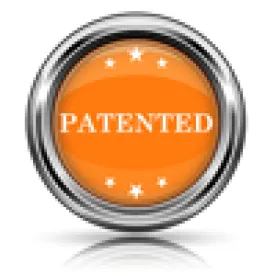Takeaway: In order to have standing to file a petition for covered business method patent review, the petitioner must provide facts sufficient to show it would have standing to bring a declaratory judgment action in federal court. The fact that its clients or customers have been sued is not enough on its own to confer such standing.
In its Decision, the Board determined that Petitioner did not have standing to file a covered business method patent review of the ’167 Patent; therefore, it did not institute trial.
Petitioner asserted that it has standing to file a petition for covered business method patent review because a real and substantial controversy exists regarding infringement of the ’167 Patent such that Petitioner has standing to bring a declaratory judgment action in federal court. Petitioner stated that Patent Owner has filed suit against numerous real estate brokers and real estate industry providers who operate websites substantially similar to those owned by Petitioner. Petitioner also stated that its clients and customers use data from its products in creating their own websites, and that its clients and customers have been sued and contacted by Patent Owner. Patent Owner argued that neither Petitioner nor its real party-in-interest has been sued by Patent Owner for infringement, there is no privity between Petitioner and any party sued for infringement, and that Petitioner has failed to allege sufficient facts to show an actual controversy between Petitioner and Patent Owner.
The Board began by noting that the AIA states that only a party “charged with infringement” of the patent at issue has standing to file a petition for CBM review. “Charged with infringement” means that the petitioner would have standing to file a declaratory judgment action in federal court. In order to have standing to bring a declaratory judgment action in federal court, the Supreme Court has said the dispute must be “definite and concrete” and “real and substantial.” MedImmune, Inc. v. Greentech, Inc., 549 U.S. 118, 127 (2007). Simply disagreeing with the existence of a patent or suffering an attenuated, non-proximate effect from the existence of a patent is not enough. Further, where a patent holder accuses a customer of direct infringement for the sale or use of a supplier’s equipment, the supplier has standing to commence an action if the supplier has to indemnify its customers or if there is a controversy between the patentee and the supplier as to the supplier’s liability for induced or contributory infringement.
After reviewing the evidence, the Board was unpersuaded that Petitioner had shown that it had standing. Citing Association for Molecular Pathology v. Myraid Genetics, Inc., 689 F.3d 1303 (Fed. Cir. 2012), the Board found that Petitioner itself had not been contacted by Patent Owner, and the fact that other similarly situated companies had been contacted and sued by Patent Owner was not enough to confer standing. Although this case is distinguishable from Association for Molecular Pathology because here Petitioner was practicing the patent at issue, that was not enough to persuade the Board that Petitioner had standing. Further, the fact that its customers were sued was not enough to confer standing because Petitioner did not show that it had any obligation to indemnify its customers and there was no evidence that Patent Owner had contacted Petitioner regarding induced or contributory infringement.
Finally, the Board noted that Petitioner had incorporated by reference 177 pages of claim charts into the Petition, and that the Petition set forth 10 separate grounds of anticipation for 20 different claims based on 10 unrelated prior art references. The Board then cited to prior decisions were it did not approve of these actions.
Texas Association of Realtors v. Property Disclosure Technologies, LLC, CBM2015-00069
Paper 15: Decision Denying Covered Business Method Patent Review
Dated: July 28, 2015
Before: Michael P. Tierney, Michael W. Kim, and Jason J. Chung
Written by: Kim
Related Proceedings: Property Disclosure Technologies LLC v. JBGoodwin Relators, Inc., No. 6:14-cv-00032-JDL (D. Del.); Property Disclosure Technologies LLC v. Better Homes and Gardens Real Estate LLC, No. 6:14-cv-00013-JDL (D. Del.)



 />i
/>i

